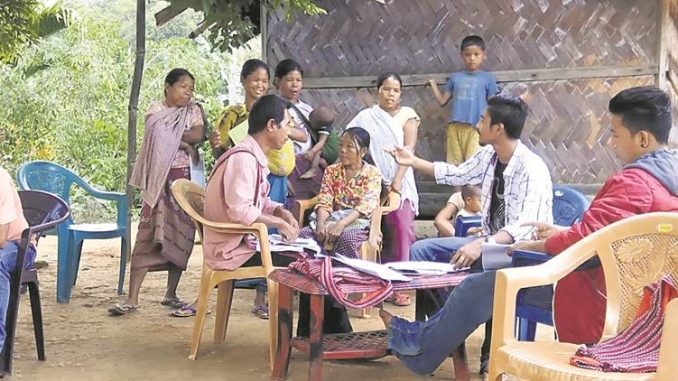
By Seema Chishti
The legislation — applicable to 11 departments and 21 schemes — was passed on April 4, and was followed by pilot social audits for 26 schemes in 18 villages of the northeastern state
Meghalaya on Friday became the first state in India to operationalise a law that makes social audit of government programmes and schemes a part of government practice. Chief Minister Mukul Sangma launched ‘The Meghalaya Community Participation and Public Services Social Audit Act, 2017’, at a national convention in Shillong.
The event was attended by more than 200 people from state departments, citizens from audited villages and eminent citizens associated with social audits. The legislation — applicable to 11 departments and 21 schemes — was passed on April 4, and was followed by pilot social audits for 26 schemes in 18 villages of the northeastern state.
So far, social audits of government programmes have been done at the initiative of civil society organisations. These social audits had no official sanction. K N Kumar, Principal Secretary of Programme Implementation and Evaluation, the nodal agency implementing the social audit law in Meghalaya, cited three things as key in the Act.
“First, it will make it easier to correct course as the scheme is rolling along; the audit is not after all the money has been spent. Two, it gives people a direct say in how money will be spent and fills an information gap for officers as they are directly in touch with the ground. Third, social audits have been civil society initiatives rather than government-mandated. They are now part of the system,” he said.
Even in the pilot stage, it has “revealed serious gaps in programme implementation, and the government has responded by taking swift action”, they said.
Various policy issues related to the schemes have also emerged. The state government will now take up with the Centre the issue of an additional Rs 2 per child towards cooking cost to ensure daily hot cooked meals to all children studying in schools, ration cards of all non-NFSA beneficiaries will be distributed by December 30, 2017, every school will have a boundary wall built for it under MGNREGA.
Anita Pattanayak, Deputy CAG officer in Meghalaya, said, “This is a grassroots method of auditing and stems from the people themselves. I hope it will make auditing more meaningful.” But isn’t auditing, by definition, meant to involve people on the outside? Pattanayak said, “The social audit facilitator will provide an outside perspective, but it will take into account what people directly benefitting or meant to benefit from the scheme have to say. The report will eventually come to us, autonomous auditors.”
Rights activist Aruna Roy called it an extension of the larger accountability framework: “Social audit puts into practice the signature slogan of the Right to Information movement in India — “Hamara Paisa, Hamara Hisab”. This is the institutionalisation of participatory democratic governance.” Nikhil De of the Mazdoor Kisan Shakti Sangathan termed it “an important step forward in the lexicon of participatory governance in India, and indeed the world”.
Source: Indian Express

Leave a Reply